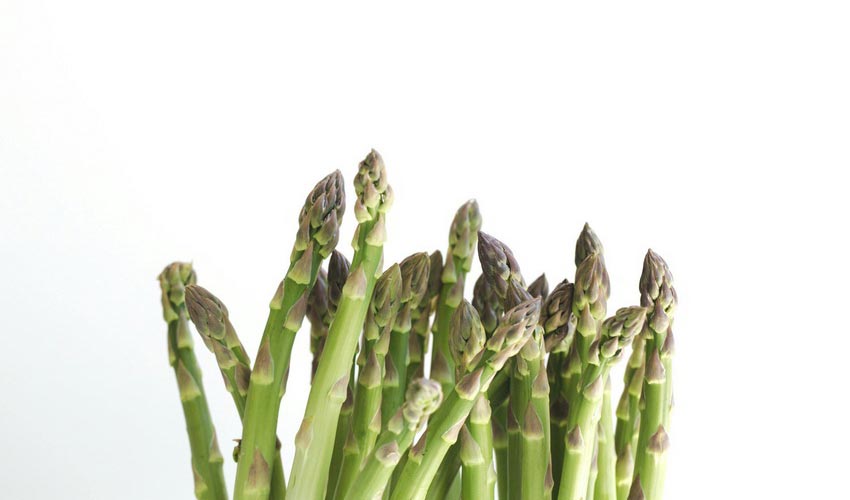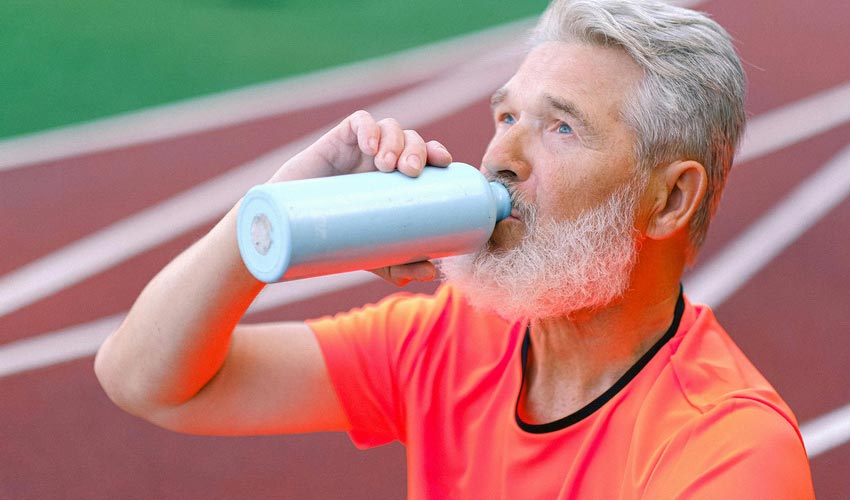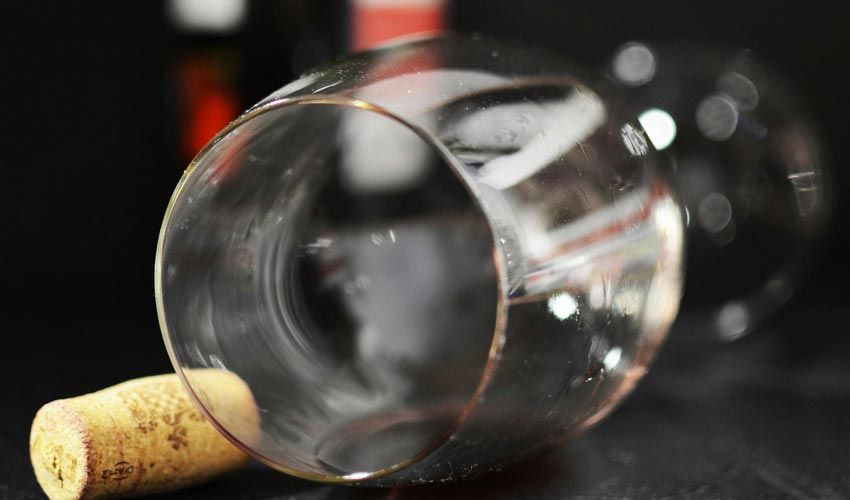Natural Home Remedies for Hangovers
If you’re searching for relief from the aftermath of a night of excessive partying, you may be pleased to learn that there are several home remedies that can help alleviate the discomfort of a hangover. Hangovers are typically characterised by symptoms such as queasiness, fatigue, headaches, dry mouth, stomach upset, and impaired memory. According to Dr. Deep Bhatt, an internist at Weill Cornell Medicine in New York City, there are 3 main factors that contribute to the unpleasantness of a hangover: inflammation, dehydration, and sleep deprivation. To prevent a hangover, it is advised to drink alcohol in moderation. The U.S. Department of Health and Human Services recommends no more than 1 drink a day for women and no more than 2 drinks a day for men.
It is also important to be mindful of any interactions between alcohol and medications you may be taking, as certain medications can cause adverse effects when combined with alcohol. In terms of prevention, eating a full meal before drinking, staying hydrated and consuming foods that may support liver function such as asparagus may help lessen the severity of a hangover. However, if a hangover does occur, there is no single cure-all remedy available. Nonetheless, there are practical strategies that may help alleviate symptoms. It is recommended to try some common hangover remedies to help ease the discomfort.

Make Sure to Drink Plenty of Water to Replace Lost Fluid
According to Shilpi Agarwal, MD, a family medicine physician, the easiest home remedy for a hangover is to drink pure water. Alcohol acts as a diuretic, causing the body to lose fluids through increased urination. The Cleveland Clinic notes that after consuming four alcoholic drinks, a person can lose up to a quart of urine. While water may not completely prevent the aftereffects of a hangover, it can help hydrate the body and restore necessary fluids. Pete McCall, an American Council on Exercise-certified personal trainer, explains that drinking water can help the bloodstream carry nutrients and oxygen to tissues and remove waste from excessive alcohol consumption. There are some articles suggesting that fermented drinks like kombucha can be an antidote for hangovers due to their rich mineral content, antioxidants, and beneficial gut bacteria. However, research supporting this claim is theoretical. It is important to note that alcohol should not be consumed to alleviate a hangover. According to Dr. Bhatt, the "hair of the dog" remedy, which involves consuming more alcohol the next morning, may provide temporary relief by inducing euphoria. However, this will ultimately lead to feeling worse in the long run as it has a cumulative effect on the body. In conclusion, the most effective home remedy for a hangover is to drink pure water to rehydrate the body and aid in nutrient transportation. It is recommended to avoid consuming more alcohol as a means of alleviating hangover symptoms.
Speed up Rehydration by Drinking Sports Beverages
Want to gain an edge over plain old water to treat your hangover? Consider reaching for a non-fizzy sports drink. These sports drinks contain minerals called electrolytes, such as sodium, potassium, magnesium, and calcium — and are designed to help you replenish lost nutrients and quickly rehydrate, according to Harvard T.H. Chan School of Public Health. "Sports drinks will elevate blood glucose and can elevate sodium levels, which help muscle cells uptake and use water, leading to quicker rehydration," explains McCall. Some research backs this up, showing that drinking electrolytes after long periods of dehydration can significantly restore important minerals, like sodium, potassium, and calcium. No sports drink in sight? Fall back on plain filtered water and foods that are naturally packed with electrolytes, such as pretzels, which have 488 milligrams (mg) of sodium per oz, or a medium banana (422 mg of potassium), cooked spinach (157 mg of magnesium per cup), and almonds (385 mg of calcium per cup), according to the U.S. Department of Agriculture (USDA). You can also reach for water-rich foods. “They can definitely replenish fluids and decrease the dehydration that contributes to a hangover,” says Kennedy, who recommends watermelon and cucumbers, which both have high water content. “A sprinkle of salt on either can replenish electrolytes if someone has vomited,” Kennedy adds.

Recharge & Strengthen Your Body with Vitamin B for Energy & Vitamin C for Immunity
A study has shown that some hangover symptoms may be due to nutrient deficiencies, with alcohol use particularly affecting vitamin B12 levels. B vitamins play a crucial role in providing energy, supporting brain function, and maintaining a healthy immune system and nervous system, as stated by the Academy of Nutrition and Dietetics. Depletion of B vitamins can lead to fatigue and low energy levels, although other factors may also be involved. To combat the effects of alcohol on B vitamin levels, food blogger Maggie Michalczyk, RDN, recommends consuming eggs, a rich source of these energy-producing vitamins, along with lean protein and whole grains. In addition to B vitamins, vitamin C may also be beneficial in managing hangover symptoms. Research has shown a link between alcohol consumption and a weakened immune system, making the body more susceptible to illness. To strengthen the immune system and potentially reduce the risk of colds and viruses, it is recommended to consume fruits and vegetables high in vitamin C. Broccoli, oranges, red bell peppers, kiwis, and strawberries are all excellent sources of vitamin C that can help support the body's immune function.
Increase Blood Sugar Levels with Carbohydrates
According to the renowned Johns Hopkins Medicine, alcohol consumption can disrupt your blood sugar levels, leading to symptoms such as fatigue, irritability, and weakness commonly associated with intoxication. This may explain why many people believe that a breakfast of toast and honey can help alleviate a hangover. "Excessive alcohol intake can impact glucose metabolism, so consuming a snack high in carbohydrates and sugars like honey can raise blood sugar levels and provide immediate energy," explains McCall. Contrary to popular belief, indulging in greasy foods will not help alleviate a hangover as the grease cannot absorb the alcohol that has already been processed by your liver. Nutritionist Michalczyk recommends opting for a bowl of chicken noodle soup instead. "Chicken noodle soup is hydrating and salty, which can help fulfil those cravings. Additionally, you will get protein to keep you satisfied, and the vitamins and minerals from celery and carrots can replenish those lost during drinking," Michalczyk suggests. Moreover, the noodles in the soup offer carbohydrates to provide energy.
Try Taking Some Ginger (Tea) to Alleviate Nausea
If you're suffering from hangover nausea, one of the best natural remedies you can turn to is ginger. Doctors and nutritionists often recommend ginger for soothing an upset stomach, a common symptom of a hangover. Ginger is known to aid digestion and can help ease stomach upset caused by irritation from alcohol. The chemical compounds in ginger are believed to reduce stomach pain and support digestion. Research has shown that ginger can be effective in reducing vomiting and fatigue. In fact, a meta-analysis revealed that ginger reduced vomiting by 60% and fatigue by 80% in cancer patients undergoing chemotherapy. Additionally, ginger has potential antioxidant and liver-protective effects. To incorporate ginger into your hangover relief regimen, consider brewing ginger tea or simply consuming fresh ginger. The Cleveland Clinic suggests these methods for soothing an upset stomach and reaping the benefits of this super-food. Ginger can be a valuable ally in combating hangover symptoms, providing natural and effective relief for nausea and upset stomach.

Remove Your Hangover Symptoms with Exercise
One of the most effective home remedies for a hangover recommended by experts is exercise. Physical activity can increase oxygen flow to the brain and promote the release of mood-enhancing hormones to support energy levels. Additionally, exercise can help to clear toxins from the body, which can alleviate hangover symptoms. If you are up for a workout despite feeling hungover, it's important to stick to low- to moderate-intensity exercises. This is because a hangover can impair cognitive ability, motor control, and coordination. It is especially important for young, healthy individuals to engage in light physical activity, but it is best to skip exercise altogether if you are feeling unwell or unhealthy. Research has shown that a hangover can negatively impact attention, decision-making, and muscle coordination, making high-intensity exercise risky. Instead, opt for a leisurely walk to help your body recover. It is crucial to stay hydrated before, during, and after any post-drinking exercise to help replenish fluids lost from alcohol consumption. By being mindful of the intensity of your workout and staying hydrated, you can make exercise a helpful tool in recovering from a hangover.
Returning to Bed to Reset Your Circadian Rhythm
One highly effective hangover remedy to try is getting more sleep. After consuming alcohol, many hangover symptoms are attributed to poor sleep, as noted by the Mayo Clinic. Although alcohol may initially make you feel sleepy, it ultimately disrupts sleep patterns, preventing deep and restorative sleep, explains Dr. Agarwal. The Sleep Foundation supports this by stating that alcohol impacts circadian rhythms and interferes with crucial REM sleep, making it difficult to achieve a restful night's sleep after heavy drinking. Inadequate sleep can lead to irritability and depression, and the depressant effects of alcohol can worsen these conditions, according to the American Addiction Centers. To alleviate hangover symptoms, it is recommended to hydrate, eat a balanced meal containing complex carbohydrates, vegetables, and protein, and prioritise sleep, as suggested by Dr. Agarwal. It is important to note that excessive drinking followed by extended periods of sleep may indicate a larger issue, as pointed out by the Cleveland Clinic, as it can disrupt normal day and night sleep patterns. In conclusion, the best way to avoid hangovers is to refrain from excessive alcohol consumption. Hydrating, eating well, and getting adequate sleep can help alleviate hangover symptoms, but it is important to address any potentially problematic drinking habits to maintain overall health and well-being.
“If getting drunk was how people forgot they were mortal, then hangovers were how they remembered.” - Matt Haig, The Humans






















